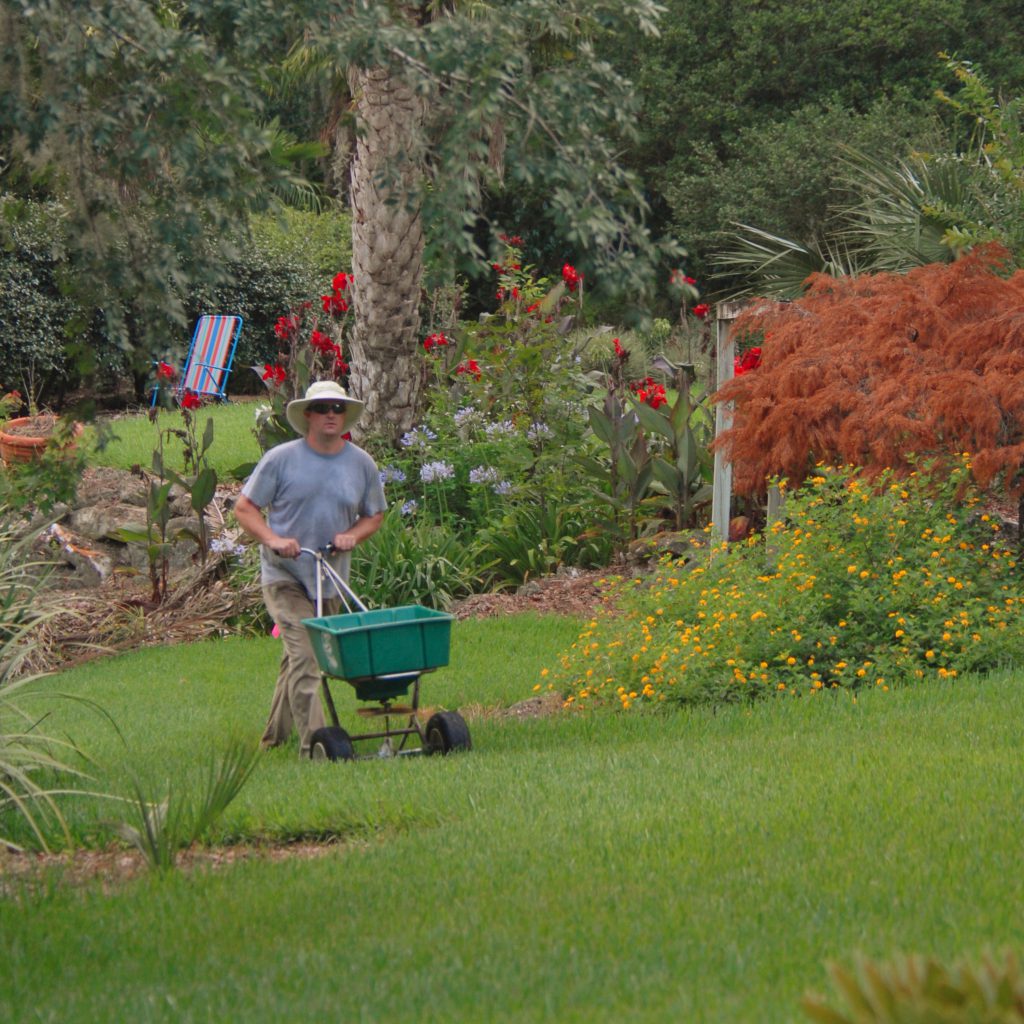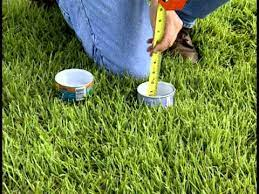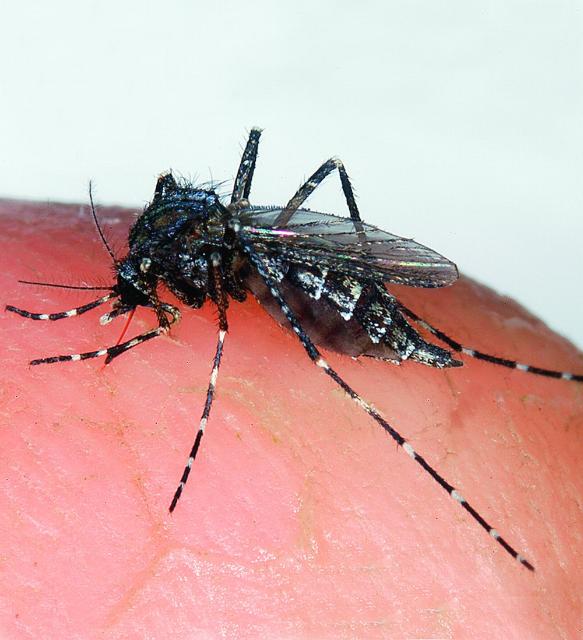Summer should be the time to relax and enjoy the fruit of all the hard work performed in the landscape over the previous winter and spring. However, there are still some essential tasks that need to be completed during the summer. Perform them in short energy bursts early in the morning or late in the evening.
1. Aerate Your Lawn
If your yard is starting to look weak and thin, even with fertilizing and proper moisture, it may need aeration. Aeration, which is creating channels into your lawn, allows water and nutrients to reach the deep roots of your grass more efficiently.
To test if you need to aerate your lawn, shovel up a patch of grass to a depth of at least four inches. If the layer of thatch is a half-inch thick or higher, your yard would benefit from aeration. There are self-drive aeration machines and tractor-pulled devices you can rent to make quick work of large areas. For smaller areas, simply punching multiple holes with a pitchfork will do the job.
2. Fertilize
Turf grass often displays a yellow color during the mid-summer rainy seasons due to the heavy rains flushing nitrogen away from plant roots. If your lawn is looking sad and yellow, chelated iron can often give a temporary green-up. Iron is not a replacement for nitrogen, but it can work well during our summer rainy season.
If you soil test revealed a potassium or magnesium deficiency, summer is a good time to make the last corrective application. Potassium (K) is an essential macronutrient. Fertilizer bags typically show the percentage of potassium in a product as the third number displayed on the front of the bag (e.g., the “8” in 16-2-8). Potassium acts as a “vitamin” for turf grass, increasing root strength, disease resistance and cold hardiness.
Magnesium (Mg), also a macronutrient, is essential for the production of chlorophyll, necessary for photosynthesis, and also plays a part in the movement of carbohydrates from leaves to other parts of the plant.
3. Don’t Mow Too Short
It’s a natural inclination to want to mow your grass as short as you can, so you have the longest time until you have to mow it again. However, giving your grass a buzz cut every time you mow can hurt your lawn over time.
While some turf grasses can be mowed relatively short, like Bermudas and some Zoysias, most grass types shouldn’t be cut shorter than two-and-one-half to four inches high. Mowing shorter than that can damage the growth point and leave it susceptible to disease and pest infestation. It can also dehydrate the grass and lead to long term damage.
5. Water Infrequently but Deeply
One common mistake made by many is watering too often and too shallow. When only given frequent shallow waterings, grass will begin to grow their roots upwards to take advantage of the small amounts of water, which makes weak and unhealthy. The grass becomes even more dependent on water and very susceptible to disease and insect attack.
Try watering only once or twice a week, but for a considerably longer time so that the water can penetrate deeper into the soil and encourage downward roots. Ideally, each irrigation zone is calibrated to determine the length of time it take to deliver ½ – ¾ inch. Then set the system to run every 3-4 days for that number of minutes. While checking the irrigation delivery system, make sure the rain shut-off device is working and set to the same ½ – ¾ inch.
6. Prevent Mosquitoes
Summer rains on a nearly daily basis lead to lots of standing water. In less than one inch of water, hundreds of mosquitoes can hatch 3 -5 days later. Not only are these blood-sucking pests annoying, but they can also transmit dangerous diseases like West Nile and Zika Virus. Even without disease, their bites are painful and irritating.
To prevent mosquitoes, make sure no standing water is allowed to remain in your yard, either in low points or in empty containers like flower pots or wheelbarrows. Any amount of stagnant water is the perfect breeding ground for mosquitoes. Take a walk around the yard, dumping out water and disturbing the oak and magnolia leaves that are acting a collection cup. Treat birdbaths and water features with floating “donuts” specifically designed to kill mosquito eggs.
While getting tasks done in quick morning trips to the yard, make sure to keep hydrated. Heat exhaustion can happen fast.
- Watch for “Melting Grass” - February 19, 2025
- Palms Can Suffer in the Cold - January 30, 2025
- Camellia Care - January 9, 2025



